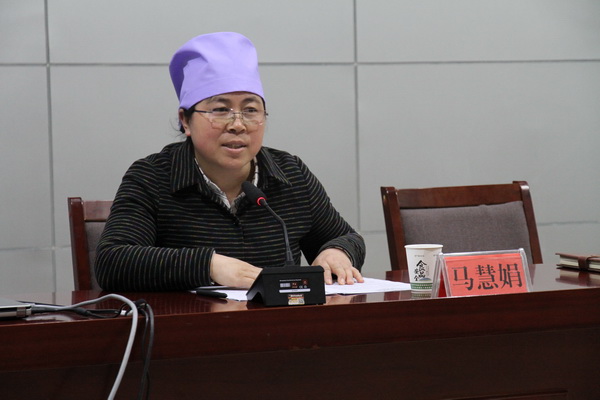Farmer by day, writer by night


Writing, let alone publishing, is a luxury for women from China's remote villages, especially those busy with housework or on the farm all day, or those who cannot easily get access to books or the internet.
Despite these obstacles, Ma Huijuan, a 38-year-old farmer from Yuchi village, Ningxia Hui autonomous region, persevered for eight years and is now an author of two books.
Over the years, she has typed 2 million characters on her mobile phones in her spare time, and she wrote personal essays about her daily life and those of other farmers. Ma's third book is due to be published in April.
Now, Ma has become known for her writing in her village. In April, she organized a study group of more than 30 women and taught them to read and write.
She said that writing can enrich her mind.
"Like all the women in our village, my daily life revolves around farm work, feeding the flocks and herds, attending to the elderly, housework, and doing part-time jobs to earn extra money," she said. "Life is indeed tough, but all these are not a big deal for me. What I can't tolerate is the emptiness in my mind."
Ma left education at age 16 to help her family with farming. However, that did not end her love of reading, and she managed to borrow books from her classmates.
After getting married at age 20, she stopped reading until in 2008 when she bought her first mobile phone, and started to read and write online. To date, she has used 14 devices by writing articles on them every day.
"I wrote about 100 characters for the first time on my tiny phone. It described my depressed mood at that time because I wanted to read but there were no books for me," she said. "In a village, it is even harder to borrow a book than money. The villagers are usually not highly educated and they could not understand me. So, I could express my thoughts to no one but through online writing."
Ma has been writing on her mobile phone every day since 2008. She writes for two or three hours on quiet days, and only for about five minutes on busy days. She sends her personal essays to Qzone, a blog operated by Tencent.
In her essays, she describes the scenes and anecdotes of her daily work, such as sheep shearing, harvesting corn and building houses, in a plain but humorous way. Her other essays are more like lyrical prose describing her family, her childhood, the villagers and the scenery in Ningxia.
About 100 of her online followers comment on these essays and exchange ideas with her. Among her followers are businessmen, students, white-collar professionals and other literary lovers across China.
Ma was not able to write and upload too many articles as she could not afford the fees for more mobile phone data. Hence, one of her readers from Hunan province paid the fees for her mobile phone data, allowing her to start posting longer pieces online in 2014.
"At the end of 2014, my readers helped me submit my essays to Yellow River Literature," Ma said, referring to a literary journal. "Four of them were accepted and published."
However, a woman who "fiddles" with her mobile phone every day drew criticism from her family and neighbors. People said Ma was restless and discontented with life. Her husband also complained she used her mobile phone too frequently.
"They didn't acknowledge me until my first article was printed. In rural areas, the traditional mindset is that men and women have separate responsibilities. That is, we take care of the housework inside, and the men are the breadwinners working outside," she said. "As for reading and writing, that is the business of intellectuals, not farmers.
"But I don't think so. After finishing my work, I can develop my interest in my spare time."
In October, as the cultural promoter in the village, Ma helped with expanding the local library, and encouraged reading among villagers, particularly children and women.
"Reading and writing helped me express my thoughts and feelings," she said. "I learned how to communicate with other people and to accept my imperfect self. I hope that more people would see the necessity of studying and feel brave to chase their dreams."
- China's unyielding fight against corruption
- Snow sculptures in China's 'Ice City'
- China accelerates urban renewal efforts to create livable, resilient cities
- Ice 'Terracotta Warriors' to debut at Harbin Ice-Snow World
- Major airport in Guangzhou sees record passenger throughput
- China launches new project to support young scientists





































